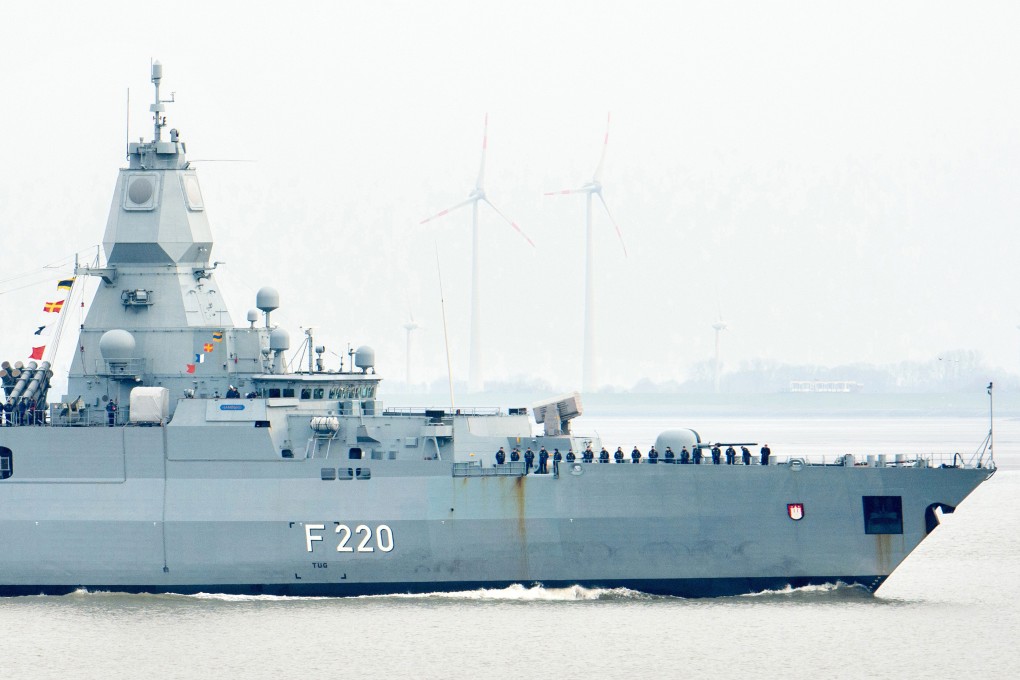Advertisement
Japan, Germany’s first ‘2 plus 2’ dialogue shows extent of Tokyo’s outreach amid China’s rising assertiveness: analysts
- Defence and foreign ministers from Berlin and Tokyo are expected to discuss the ‘free and open Indo-Pacific’, according to the Yomiuri newspaper
- Experts say the meeting is significant and shows Japan is attempting to expand its security ties beyond traditional partners such as the US
Reading Time:3 minutes
Why you can trust SCMP
40

Julian Ryallin tokyo
The defence and foreign ministers of Japan and Germany are to hold their first “2 plus 2” discussions in mid-April, with security and the concept of a “free and open Indo-Pacific” heading the agenda.
The Yomiuri newspaper’s Monday report, citing unnamed sources, said the ministers would have the talks by videoconference on April 16, and added that Tokyo was expected to use the meeting to underline its growing concern at China’s increasingly assertive stance in the region.
Given Germany’s geographical distance from East Asia, the meeting was “interesting and significant”, said Hiromi Murakami, a professor of political science at the Tokyo campus of Temple University.
“There has been quite a lot of discussion in the Japanese media in recent weeks about Germany sending a warship to the region, which has struck me as a major change in [Berlin’s] attitude,” she said.
“My impression is that Germany has for some years been quite close to China, primarily due to trade and perhaps because they did not want to antagonise an important trade partner, but this appears to be a significant shift. Perhaps the change in attitude there is because of the coronavirus pandemic, but it may also be because of growing concerns over human rights issues in China or ocean trade routes.”
Japan appears to be motivated to seek out new allies to ratchet up the global pressure on Beijing to moderate its policies, which range from the repression of the political opposition in Hong Kong to reports alleging human rights abuses against the Uygur people in Xinjiang.
Advertisement